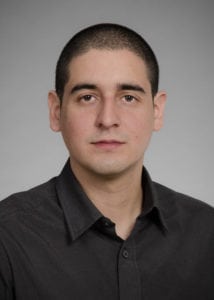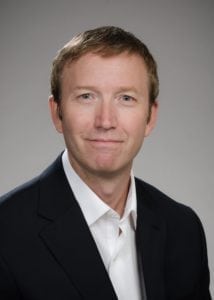Two CHOICE graduate students were recently awarded global health travel fellowships. Erik Landaas received the Global Opportunities (GO) Health fellowship for his work in Thailand. Enrique Saldarriaga received the Stergachis Endowed Fellowship for International Exchange for his work in Kenya with Dr. Ruanne Barnabas, Associate Professor in Global Health and Medicine at the University of Washington and affiliate at the Fred Hutchinson Cancer Research Center.
Improving cervical cancer screenings in Kenya: Enrique Saldarriaga
 This summer, through the Stergachis Fellowship, CHOICE PhD student Enrique Saldarriaga will be conducting research in Kenya on estimating the cost of cervical cancer screening. Working with Dr. Ruanne Barnabas, their project aims to estimate the lower-cost of five different techniques of STI screening. They hope to develop an investment case for HIV and cervical cancer interplay infections.
This summer, through the Stergachis Fellowship, CHOICE PhD student Enrique Saldarriaga will be conducting research in Kenya on estimating the cost of cervical cancer screening. Working with Dr. Ruanne Barnabas, their project aims to estimate the lower-cost of five different techniques of STI screening. They hope to develop an investment case for HIV and cervical cancer interplay infections.
At the KEMRI/WRP clinical research center laboratories in Kenya, Enrique will collect critical costing data necessary to evaluate the cost effectiveness of these five screening methods. This is important work, as cervical cancer accounted for 570,000 new cases and 311,000 death worldwide in 2018, with the vast majority of those concentrated in sub-Saharan Africa and South-Eastern Asia. Moreover, its one of the leading-cause of death among women in Kenya.
There is vast literature showing the health benefits of screening strategies for early treatment and cervical-lesions progression prevention. Potential interventions need to go through an economic evaluation to determine: value of money (economic return in health outcomes terms) and feasibility of the investment specific for the setting.
A lack of rigorous economic assessment results in sub-optimal decisions, inefficient resources allocation, and compromises stability of intervention in time. Ultimately, all of this affects the scope of the intervention and the number of women whose progression to high-grade of cancer lesions might be prevented. This study focuses on a key element of economic evaluations: costing.
Enrique will use a micro-costing technique that starts identifying all relevant cost components at the individual (per case) level, from all health services involved in the services provision, to finally adding them up to estimate a unitary cost per person screened under five different techniques: Visual Inspection with Acetic Acid (VIA) or Visual Inspection with Lugol’s Iodine (VILI), histopathology based screening (PAP smear), qualitative rapid HPV tests, and semi-quantitative HPV research assays.
Testing the PupilScreen app in Thailand: Erik Landaas

An opportunity made possible by his GO fellowship, this summer Erik will continue his work on the PupilScreen phone app by conducting study oversight with hospitals in Thailand to ensure good study fidelity. The PupilScreen app offers a low-cost, easy to use test for Traumatic Brain Injury (TBI).
He will observe the full scope of the study protocol including patient enrollment, device screening, data collection, data management and protected health information (PHI) to ensure the patients’ confidentiality. Being there will also help with addressing any problems that may occur and solve issues in real-time.
Additionally, he hopes to work with Naresuan University Hospital’s computer science program to annotate the patient screens from the PupilScreen app for machine learning algorithms. He has been invited to provide lectures at Naresuan University’s School of Pharmacy and School of Nursing about his research: PupilScreen and his work at UW Medicine, as well as the review of new medical technologies (Smart Innovation).
Read more about Erik’s PupilScreen project